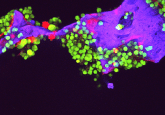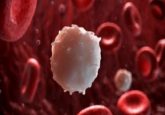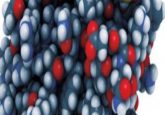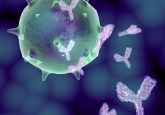Precision drug signals disruption for cancer-promoting receptors

Originally discovered at Sanford Burnham Prebys (SBP; CA, USA), K-80003 is an anti-cancer agent that, in a new study, has been demonstrated to work by preventing the activation of the common PI3K pathway. Researchers have discovered K-80003 binds to a truncated form of retinoid X receptor alpha (tRXRα), and in doing so freezes the protein into a tetrameric configuration. This prevents the activation of the PI3K pathway, in turn preventing tRXRα’s ability to promote tumors.
The researchers wanted to understand precisely why K-80003 was so effective while provoking so few side effects. Working with the lab of Robert Liddington (SBP), they utilized X-ray crystallography to visualize the physical interaction between K-80003 and tRXRα at an atomic scale. Their investigations revealed that six molecules of K-80003 bound to the tetramer interfaces of tRXRα creating a configuration that locked the tetramer into a tight ball, concealing all binding sites and rendering it incapable of stimulating the PI3K pathway.
While normal cells only produce full length RXRα proteins, the mutation that allows tumour cells to produce tRXRα leads to an intense response – stimulating the PI3K pathway and accelerating tumour growth. K-80003 clamps down on the truncated protein, cutting off these excessive growth signals. In addition, K-80003 often brings tRXRα back to the nucleus, potentially inhibiting tRXRα further and enhancing the therapeutic impact of K-80003.
Their study, published in Nature Communications, still had one more insight to reveal. The researchers also discovered an LxxLL motif in the p85α protein. The p85α protein acts as intermediary between RXRα and PI3K; the identification of LxxLL therefore provides a greater understanding of how tRXRα binds to p85α, demonstrating that if tRXRα becomes a tetramer then p85α cannot bind to it.
Senior author, Xaio-kun Zhang (SBP) commented on the potential of K-80003: “The tRXRα protein is produced in almost all cancers, so the compound could be very effective for many different types, such as breast, liver and colon.”
In the long term, a full understanding of the mechanisms revealed by this study could result in the emergence of a variety of novel therapies. For the time being, however, it illustrates that K-80003 has the potential for broad applications owing to the prevalence of PI3K across cancers. Tarrex Biopharma Inc. (CA, USA) has licensed the compound and announced plans to begin Phase I clinical trials at Dana Farber Cancer Center (MA, USA) for colorectal cancer patients.
Sources: Chen L, Aleshin AE, Alitongbieke G et al. Modulation of nongenomic activation of PI3K signaling by tetramerization of N-terminally-cleaved RXRα. Nat. Comms. doi:10.1038/ncomms16066 (2017); www.eurekalert.org/pub_releases/2017-08/spmd-dsc080417.php




